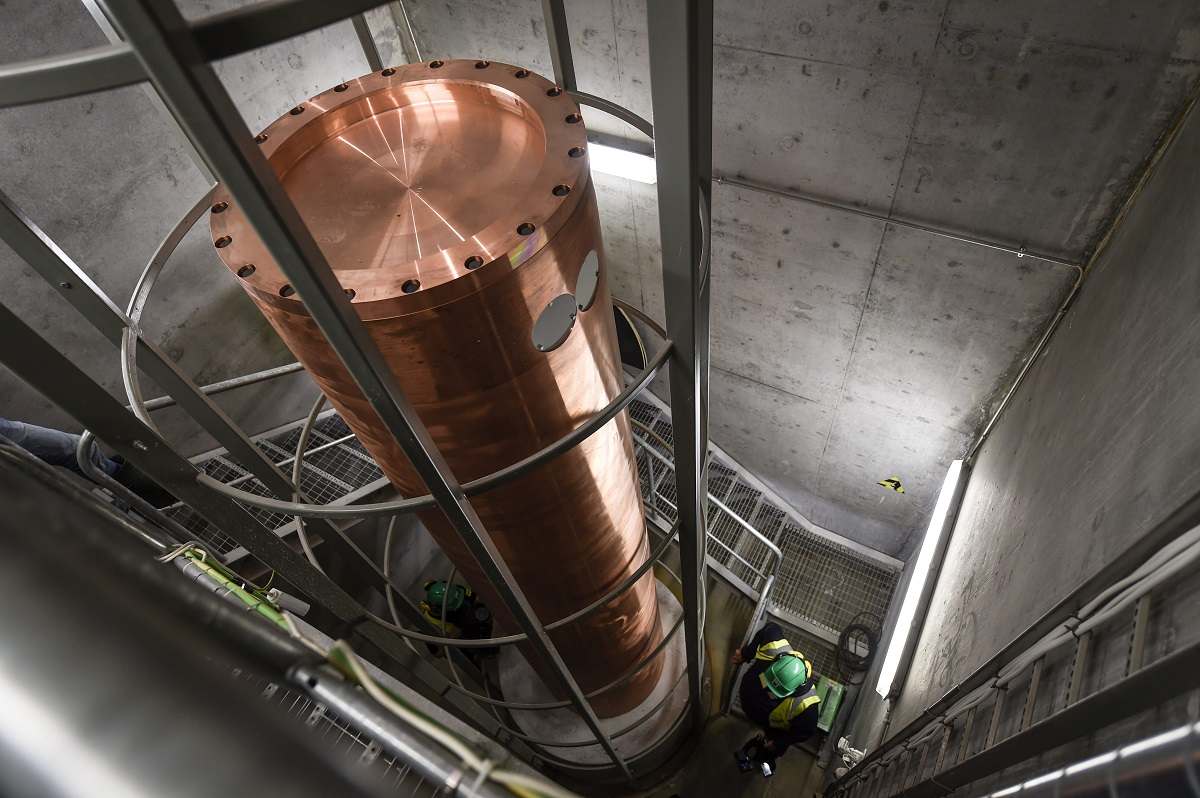
Copper capsules for spent nuclear fuel photographed during tests at the Onkalo spent nuclear fuel repository in Eurajoki, Finland, in June 2018.
February 15, 2024 2:00 (Japan time)
Selecting a final disposal site for highly radioactive waste is a challenge for countries with nuclear power plants, but few countries have decided on a final disposal site.
Finland is the most advanced country, deciding on a disposal site in 2000 and starting construction of the world’s first geological disposal site in 2016. It is scheduled to begin operation in the mid-2020s.
It took Finland more than 30 years to begin construction. The company in charge of nuclear waste disposal has selected about 100 potential sites. An area survey was conducted in five municipalities that had agreed to use the site as a nuclear waste disposal site, and those that were prepared to accept the site were selected. The company proactively disclosed information to residents and held a number of small gatherings to encourage dialogue. In the end, many residents supported the plan.
Sweden finalized the site selection in 2009, and the government approved the plan in 2022, with the aim of starting operations in the late 2030s. Similar to the Finnish operators, the Swedish business operators also visited the site in their spare time from farming and dairy work to discuss the project in an effort to gain the understanding of the residents.
In France, a major nuclear power country that generates about 70% of its electricity from nuclear power, the government agency in charge of constructing a disposal site applied for a permit in 2023.
In the United States, the government took the initiative in selecting a location in Nevada in 2002. The Department of Energy applied to build a repository, but the administration of then-President Barack Obama, who took office in 2009, canceled the project. The review process remains at a standstill.
According to Professor Shunji Matsuoka of Waseda University, who is an expert on geological disposal issues and specializes in environmental economics and policy research, the acceptance of repositories in Northern Europe is partly due to the high level of public trust in governments, operators, and administration. It is said that there is. Regulatory authority.
Regarding the Nuclear Waste Management Organization, Mr. Matsuoka said, “NUMO is also providing a forum for discussion.” [the issue] Although we are cooperating with the residents, it is mostly one-sided from NUMO. ”
Mr. Matsuoka said, “In order to foster understanding and trust regarding disposal, [of nuclear waste] In Japan, which has experienced the Fukushima Daiichi Nuclear Power Plant accident, it is necessary to incorporate knowledge, opinions, and examples from other sources in order to gain the understanding of residents. ”
